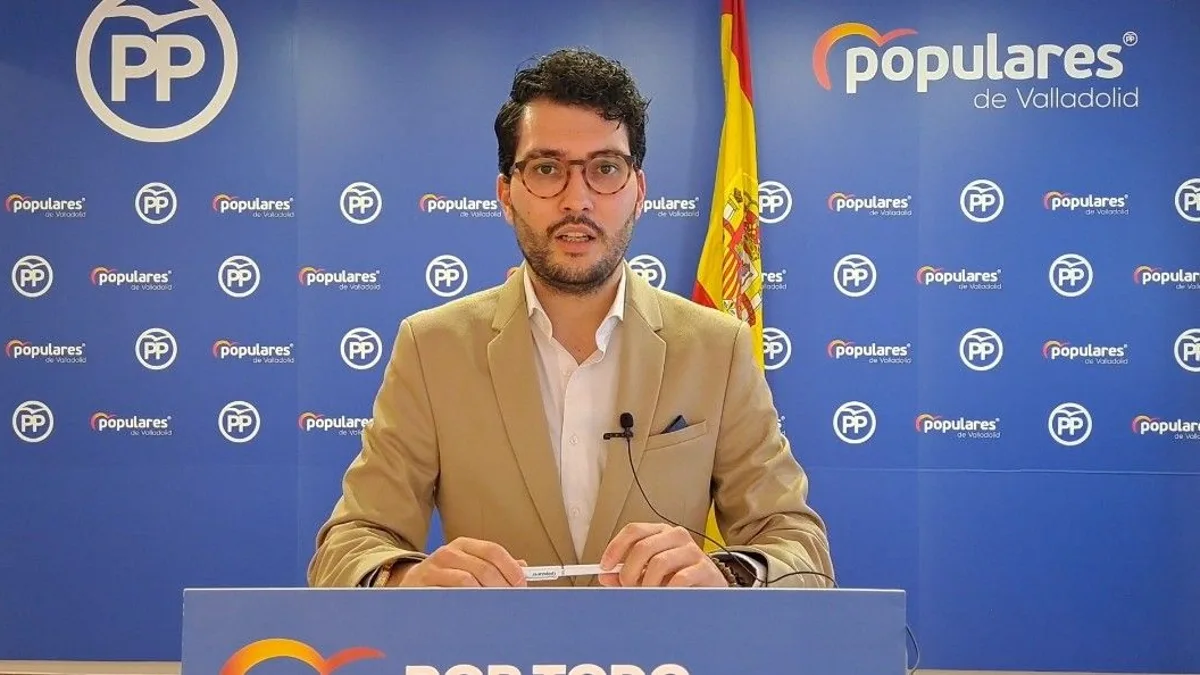Andy Burnham, Jon Collins, Jo Twist and figures from the music industry have spoken out about the urgent need to support the grassroots at Beyond The Music 2024.
READ MORE: Report shows “disaster” facing grassroots music venues: “The big companies and arenas are now going to have to answer for this”
The conference and festival, which was just held in Manchester last week (9-12 October), returned after its inaugural year in 2023. Held at the recently-erected Aviva Studios, the conference saw Mayor of Greater Manchester Andy Burnham deliver a short speech following his appearance at BTM last year, along with Lisa Nandy (Secretary of State for Culture, Media and Sport) giving her first address to the UK music industry.
NME caught Burnham to ask for his reaction to the news of Coldplay’s own ticket levy, after the band announced they would donate 10 per cent of their profits from their 2025 UK stadium shows to save the grassroots. They follow in the footsteps of Enter Shikari, and in the wake of recommendations from MPs last May to add a £1 levy on arena and stadium gigs.
Coldplay perform in 2024. CREDIT: Denise Truscello/Getty Images
Speaking to NME exclusively, Burnham praised Coldplay’s ticket levy as “a fantastic move”.
“I wholeheartedly support it,” said Burnham. “I made a call here last year that the industry needs to do more to give back to support its own grassroots venues, rehearsal spaces and talent development systems. I think it’s brilliant, and I applaud Coldplay for doing that.”
However, Burnham also urged for more “systemic” change in the industry. When asked what changes he would like to see used with the money from Coldplay’s ticket levy, he responded: “It’s about a music career being sustainable for people.
“People can’t live on unpaid roles or things that are short-term,” he continued. “We need funding to support people to find a sustainable future within the music industry, as well as obviously protecting the spaces where they want to rehearse and perform. Building a talent development system that is structured all the way through – I often compare it to football.”
He added: “I could pick many faults with football, as I often do, but it’s pretty good, it’s talent development. And I think music needs to take a leaf out of its book.”
The conference also saw Lisa Nandy give her first public address to the UK music industry, announcing the government would launch a consultation shortly into the issue of re-sales in light of the Oasis ticketing controversy. “We don’t want to see a repeat of that,” she said, “so we are looking at what we can do to improve transparency and protect against that.”
Oasis’ Liam and Noel Gallagher. CREDIT: Simon Emmett
Later in the Q&A, Nandy elaborated on the government’s plans to grow the grassroots, saying it was “absolutely at the top of our agenda” and promising “you’ll hear more from us in the next month.”
Amongst other policies, Nandy spoke of plans to amend the existing Community Right To Buy scheme for venues. Stating that the scheme was only useful in “mostly in affluent parts of the country” due to the short amount of time required to raise money, Nandy acknowledged the scheme was “way beyond reach” for many communities.
“We’re going to extend the amount of time that communities have to be able to raise that money,” Nandy told conference-goers at BTM. “We’re going to make it easier for them to find out who owns the land, who owns the buildings, and take them back into public use.
“We’re also looking at how we can make sure that there’s funding available to be able to do that. We want to have those incredible live music venues that so many people in this room will remember, will love and feel close to their heart. We want to make sure that that scene can continue to thrive.”
Lisa Nandy speaks at Beyond The Music 2024 in Manchester. Credit: Nici Eberl
Meanwhile, at the ‘Growing The Grassroots’ panel, which explored how cross-industry investment could help save the grassroots scene, LIVE CEO Jon Collins argued that “people do still want to go to the venues, but the economics at grassroots is broken. So it’s not that there isn’t the demand from people to go to shows – it’s that you can’t put a show on a price point that works for everybody.”
Collins cited “lockdown, Ukraine, and lettuce” (a reference to former Prime Minister Liz Truss’ tenure) as the reasons for this, explaining: “The lockdown broke the supply chain for the industry, which pushed prices up. Obviously, Putin’s illegal invasion of Ukraine threw inflation into all of society, into our supply chain, and also reduced the amount of disposable income that people had to spend.
“And then the lettuce is Liz Truss and that disastrous budget, which pushed interest rates up, made it more expensive for rental houses, to put kit out for everybody’s mortgages, for the venues.
He continued: “So we’ve had these pressures that have pushed down on people’s disposable income, pushed up how much it costs to put on a show, a tour, a festival. That’s the crunch that is really hurting us at the moment. We have oodles and oodles of talent in this country, and we love going to experience that communal live moment. So no, it’s not that people don’t want to come out – it’s that the economics don’t stack up.”
Collins went on to reiterate his demands for Government to cut the “punitive” 20 per cent VAT rate, along with amending the forthcoming Terrorism (Protection of Premises) Bill, which was formed following the Manchester Arena bombing tragedy in 2017 (“the principles are right, but it’s messy”). He also called for strengthened EU touring solutions in light of Brexit, which he previously claimed was “strangling the next generation of UK talent in the cradle” in 2022.
CEO of the BPI Jo Twist also added that one of the industry’s biggest challenges was convincing the Government to “take us more seriously than they do”. It was revealed that opera, orchestras and classical music accounted for around 80 per cent of the Arts Council England’s Investment Programme for 2023-2026.
“There was a phrase that went around, the party conferences that my team and I were at: we’re [the music industry] not just ‘sparkle’,” Twist recounted. “We are an economic driver of growth, we’re the second biggest export market globally. We are delivering £6.7billion into the economy. We are about identity, that cultural power, and it’s because we’re really diverse as a country and we need to focus on that as an industry and be united together.”
The Grassroots Summit at Beyond The Music 2024. Credit: Gracie Hall
Meanwhile, Sam Duckworth (better known as Get Cape. Wear Cape. Fly), advocated for the industry to go back to basics when it comes to maintaining the grassroots. Duckworth, who grew up in Southend-on-Sea, spoke of his personal history, saying: “My father came over to the UK on a boat. We had no money growing up. The places that existed were youth centres and community centres. And they closed and that’s where we lost the ability to intercept working-class people.
Budding musicians, Duckworth added, require music venues to congregate and practise in. “It doesn’t matter if you give a child an instrument,” he said. “If they take it home and they can’t practise, that education has to happen in school. If they’re trying to do music education in school and you haven’t got the facilities to do that, where do you go?
“You only need to listen to Steve Lamacq talk about the Harlow Square – that was a joint venture between the council and the creative community, and it allowed young people to hire the space. They’d raise enough money from the gig that they’d put into rehearsal and it created its own circular economy. They existed up and down the country and when those budgets were slashed, we lost that social infrastructure.
Duckworth continued: “If we’re going to have conversations about social prescribing, it’s going to be very difficult for us to rebuild all of those things now. So we need to look at what infrastructure we have that can deliver the results that youth clubs and community centres used to do. You only need to listen to Femi Koleoso from the Ezra Collective talk about the importance of youth centres; he does it at every single gig.
“I think the solution may be to go back to what we already had rather than to look to something new, because people need somewhere to make noise.”
IDLES performing at Moles in Bath – which has closed down. CREDIT: Press
He added that the grassroots crisis was “not just a conversation about economics”, noting that, “If we reduce every conversation within the music industry to balance sheets, we start to actually lose the importance of what culture is”.
“It’s about how do we stimulate ideas, how do we create new ways of thinking, where do we build the solid relationships that are actually the fabric of our society?” he said. “We do that in places where like-minded people can come together.
“The issue in the grassroots music venues in particular, everybody must know that rent, mortgages, electricity bills have gone up. But at the same time, at the very top of the sector, ticket prices are going up tenfold, because the artists are subsidising the money that they lost through streaming via live shows. So we have a system that is unfortunately a failed market.
“It’s not a crisis of just the venues, it’s a crisis of all things converging together. What it is doing is it’s taking away the opportunities for community specialism, and not just in places like Manchester, Glasgow. What about Le Pub in Newport? What about Froome in Devon? What about Southend-on-Sea? What about the places that have 150,000 people living there? The only place for alternative culture to exist is these venues. It’s not just economics, it’s social. It’s fabric.”
A post shared by Music Venue Trust (@musicvenuetrust)
Last year’s Beyond The Music conference saw the Music Venue Trust call for “action not kind words” as grassroots venues head for “disaster”. With 2023 proving to be the worst year for music venue closures, and 125 grassroots venues shut down, MVT CEO Mark Davyd said at the conference: “It’s completely unacceptable that our music industry is letting music collapse underneath it while it’s making the maximum amount of money it’s ever made in the history of music.”
He continued: “That is ridiculous. It’s totally unacceptable to me. It’s unacceptable to our communities.”
Back in May, a committee of UK MPs have joined the call for a levy on arena and stadium gigs – as well as a cut in VAT – to support struggling grassroots music venues and artists. The industry awaits further government response.
The post “The industry needs to do more to give back”: Andy Burnham, Lisa Nandy and more address grassroots venue crisis at Beyond The Music 2024 appeared first on NME.


























